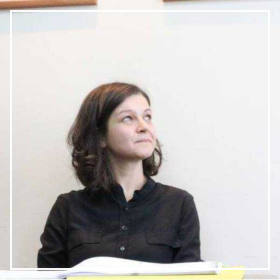In her book, Managing Ambiguity, How Clientelism, Citizenship and Power Shape Personhood in Bosnia and Herzegovina, Čarna Brković writes in a style comparable to E.E. Evans-Pritchard. The author paints vivid ethnographic scenes of a border-town in Bosnia-Herzegovina. Her confident, clear style avoids any confusion, which is generally rare, not only among contemporary anthropologists, but also among archaeologists. Too often are texts overburdened with self-reflexive analysis, leading to a jumbled message. The clarity of writing in Managing Ambiguity, by contrast, is a breath of fresh air as it works toward reestablishing a seemingly lost confidence in anthropology.
Beyond academia, the book’s general framework encompassing health and social care will be of interest to a broader public concerned with the states emerging from former Yugoslavia.
Through the ever-present theme of civic vulnerability arising from the social transition processes after the collapse of Yugoslavia, the author delves into the history of social care in the Socialist Federal Republic of Yugoslavia and its subsequent changes. The author pays particular attention to these developments in Bosnia and Herzegovina. While the there are numerous reasons for these shifts, those meriting special mention are the rise of global neoliberalism, the civil/ethnic war and the subsequent presence of the international community in its context.
 The rich social context of Bosnia and Herzegovina is the backdrop to the book’s central concepts of “veza” or “štela”. These are general terms connoting an informal network of personal and professional relationships based on social obligation. “Veza” itself literally translates to bond, connection, relation or tie, while “štela” literally means “a fix” in the sense of adjusting the outcome to be in one’s favour. The words are used to describe a system of social connections used as a key to open closed doors. Among the numerous challenges of everyday life, this system becomes evident when “štela” is called upon concerning matters of life and death.
The rich social context of Bosnia and Herzegovina is the backdrop to the book’s central concepts of “veza” or “štela”. These are general terms connoting an informal network of personal and professional relationships based on social obligation. “Veza” itself literally translates to bond, connection, relation or tie, while “štela” literally means “a fix” in the sense of adjusting the outcome to be in one’s favour. The words are used to describe a system of social connections used as a key to open closed doors. Among the numerous challenges of everyday life, this system becomes evident when “štela” is called upon concerning matters of life and death.
Brković illuminates this phenomenon exclusively in the field of social care, but the mechanisms that she describes could be applied to other social fields (e.g. scientific communities). She convincingly criticises the often-advocated, simplistic and essentialist explanations about the reasons for the existence of informal instead of regulated legal frames in this locale.
Informal practices are often expressed through sayings: “That is part of our mind-set” or “We possess a raja mind-set” (of the popular masses) to excuse behaviour falling foul of idealised, formal civic standards.
Instead, she points to similar phenomena such as the Russian blat (exchange of favours) and, based on a Foucauldian approach to power, raises questions about the true functioning of “veza.” She rejects the idea, present in public discourse, that the problem of clientelism will disappear the day the Western Balkan countries are adequately transformed, modernised, democratised and neo-liberalised.
The book centres on the blurred line between the public and private spheres, in the transferring of responsibility from state institutions to the local community for providing social care.
In contrast to the state that is, at the very least, expected to provide equal rights for all its citizens according to the letter of the law, local communities provide assistance under a more uncategorised fashion. In this manner, social care becomes randomized and unpredictable, where one person will receive care while another will not. In the process of providing care for the most immediate and the most vulnerable, the local community follows distinct norms, which the book’s opening scene illustrates:
Zoran, a man of about thirty years, is calling the emergency services for an ambulance for his father, who has suddenly become ill. Despairing that the ambulance would not arrive on time (if at all), Zoran begins to shout at the operator: “Do you know who I am? Do you know what I could do to you? I can get you fired!” Zoran is bluffing because false threats are, from his perspective, the only way to ensure a swift reaction – as he has no “veza.” In a similarly intense incident, a husband brings his wife to the hospital to give birth, carrying a gun and threatening hospital staff until his wife gives birth – since he had not secured a “štela”.
These images are but a glimpse of the phenomenon Čarna Brković terms “moveopticon”, as derived from Foucault’s concept of the panopticon. The disciplining and supervision are transfused into a more oppressive state where constant motion is necessary to survive, or to ensure the survival of those we hold dear. The coupling of incessant insecurity and being the constant subject of scrutiny is, in brief, objectified through attitudes about “what others would say” in relation to one’s personal network of interrelationships.
The significance of a third person — others known through superficial contact — is remarkably well presented through instances of successful or unsuccessful humanitarian actions. Certain goals, such as receiving expensive medical treatment abroad or obtaining a wheelchair for a person with a physical disability, may only be achieved with sufficient social capital.
In this environment, the sole determinant for securing social care is if an individual knows another who either is or knows “heavy hitters”. These relationships based on mutual reciprocal exchange only worsen individual distinction by hierarchy. Those finding themselves in a position of power over limited services or goods gain even more power when they are distributed, lawfully or not. Whether the powerful or the powerless are observed, the ambiguity mentioned in the title suggests blurred lines between the state and its society. The ambiguity itself is oppressive, which aggravates social inequality more than it does to stabilize existing relations of social equality.
An additional value of the book is its ethical dimension. The writing forgoes ironic distancing while showing deep respect for the people it observes. As a result, it is a testament to how far contemporary anthropology has moved from the time of Bronisław Malinowski. An increasing ethical orientation in anthropology and often seeks to make research provide more for the well-being of the community where the ethnography was conducted. The “anthropology at home” Brković’s book embodies indicates that ethnicity is not the most significant social vector in a post-conflict society. This in itself is one the more encouraging conclusions of the study. Ultimately, Managing Ambiguity is an intellectually stimulating ethnographic read, allowing for outsiders to access social phenomena unfamiliar to them and for insiders to be aware of a phenomenon they would otherwise be inured to.
This review originally appeared in Serbian in Issues in Ethnology and Anthropology, Vol 13 No 3 (2018).
Brković, Čarna. 2017. Managing Ambiguity: How Clientelism, Citizenship and Power Shape Personhood in Bosnia and Herzegovina. New York: Berghahn Books. 208 pp. Pb: 120$. ISBN:978-1-78533-414-6.
Featured image (cropped) by Jacob Ufkes on Unsplash.



